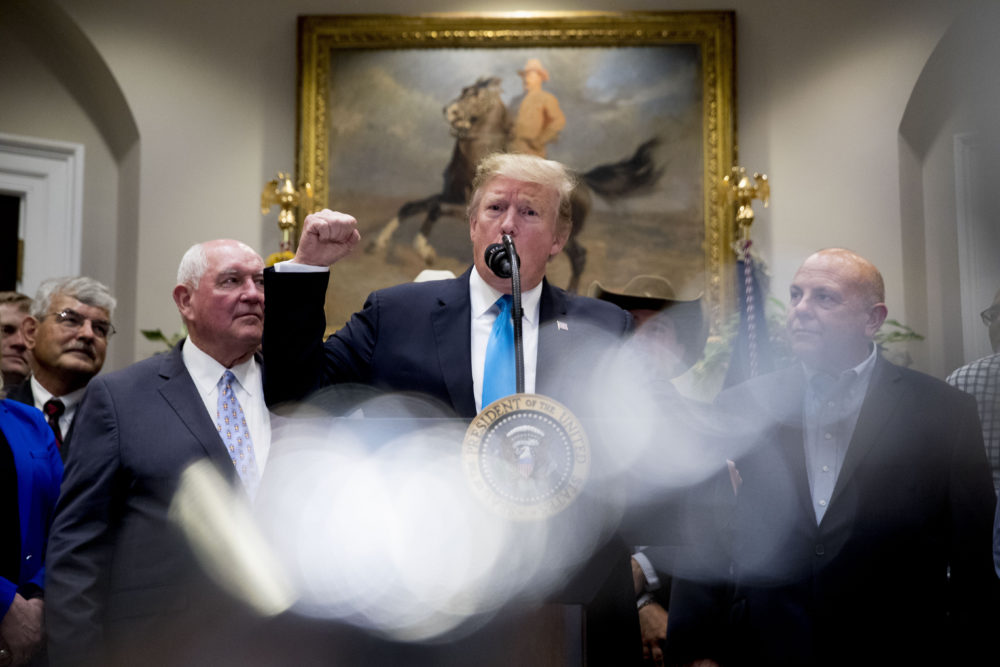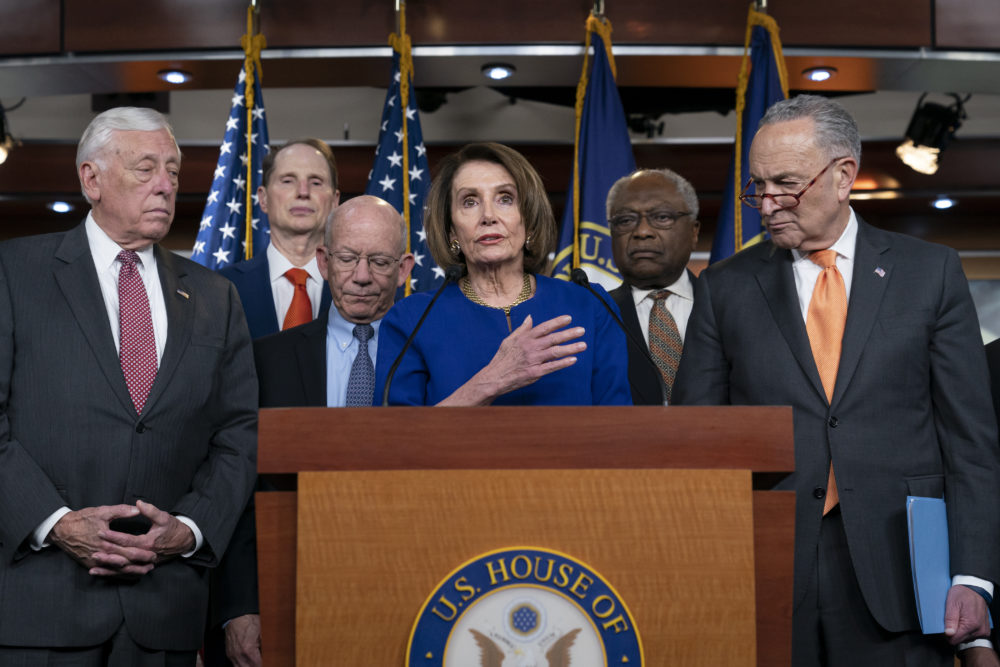Advertisement
Commentary
Is America Heading For Another Civil War?

This past weekend brought new evidence of the extraordinary nastiness that will mark America’s 2020 presidential election.
On Saturday, President Donald Trump again stirred the embers of racial antagonism when he attacked another black member of Congress, this time Rep. Elijah Cummings, a Maryland congressman whose district includes low-income sections of Baltimore.
And on Sunday, a Washington Post story with the headline, “Trump campaign sees political advantage in a divisive appeal to working-class white voters,” reported that Trump’s advisers have concluded "...that the overall message sent by such attacks is good for the president among his political base — resonating strongly with the white working-class voters he needs to win reelection in 2020."
Nasty, divisive elections are nothing new in the United States, but 2020 may go beyond nastiness and division and plunge America into a new level of disunion.
With the media already consumed by the spectacle of the unfolding campaign and political leaders on both sides playing to their base, little attention is being given to this grim prospect.
American elections are supposed to be mechanisms for resolving conflicts without resort to force or violence and, in their wake, for helping victor and vanquished reconcile.
In the history of the United States, they have almost always done that job: in even the most hotly contested elections, the losing side accepts defeat.
As Ronald Reagan said in his first inaugural address, this “orderly transfer of authority” is, “in the history of our nation … a commonplace occurrence.” He was right to add that “few of us stop to think how unique we really are.”
Similarly, after the bitterly contested 2000 election Al Gore conceded defeat by saying, “This is America and we put country before party; we will stand together behind our new president.”

It is now very hard to imagine that such grace will emanate from the loser in 2020. Indeed, the election of 1860, which helped ignite America’s first civil war, looks like it will be an all too pertinent precursor of what is to come. In that election, Abraham Lincoln’s willingness to let the south hold onto its slaves was not enough to prevent seven Southern states seceding before his inauguration in March of 1861.
Today, more than 150 years after the end of the Civil War, America is again divided, by geography, party, ideology, economics and race.
Like the election of 1860, the forthcoming election will be fought over the kind of existential questions which, in the mid-19th century, shattered the nation. As the 2020 campaign unfolds, candidates on both sides are offering dire predictions of what will result if the other side wins.
Such a rupture was foreshadowed in 2016. Since then things have only gotten worse, with the president recently suggesting that each of four women of color serving in Congress “go back" where they came from and that Democrats hate America and are trying to “destroy our country.”
Advertisement
Democrats rightly denounced the president’s racially tinged language. But they went further by saying that the president and his supporters are the ones destroying the country. As California Sen. Kamala Harris put it, "I don't think that we can survive having a president of the United States who uses whatever voice he has in a way that is about dividing and fueling hate in our country."
In light of these sentiments, it is time to focus on November 4, 2020, the day after the election.
... 2020 may go beyond nastiness and division and plunge America into a new level of disunion.
If the president wins (despite, again, losing the popular vote) will Democrats, having lived through four years of a Trump presidency, accept the legitimacy of his re-election? Will racial minorities feel ever more strongly that they are in danger of persecution?
And, if a Democrat wins, will the president claim that the election was rigged and refuse to relinquish power? Would he condone violence as he intimated in March of this year when he noted that he has the “support of the police, military and ‘Bikers for Trump’” and that “it would be very bad” if they had to get tough on his opponents?
Despite Trump’s provocative language and the warning of Michael Cohen, Trump’s former lawyer, that “Given my experience working for Mr. Trump, I fear that if he loses the election in 2020, that there will never be a peaceful transition of power,” leaders of the Republican party have refused to take this possibility seriously. As Missouri Sen. Roy Blunt put it, “Of all the silly things that are being said, that may be the silliest. The one thing we are really good at is the transition of power.”
In Reagan’s time, such dismissiveness might have been warranted. But not today.
Alas, leaders throughout the government, including the military, should prepare contingency plans for the post-election period.
More immediately, there is work for both Democrats and Republicans to do.
Moderators in the next Democratic presidential debate should press candidates to say whether they are ready to accept the legitimacy of a president they call a racist threat to our way of life.
Republican leaders need to acknowledge that Trump might not leave office willingly. They must make it clear to the president that he will find no support among members of his party if he does not accept the 2020 results.
Without advance planning and clear assurances from the president and his potential Democratic opponents concerning the peaceful transfer of power, Americans face the frightening prospect that in 2020 and beyond we may find ourselves (perhaps in the streets, perhaps not) in a new civil war.
